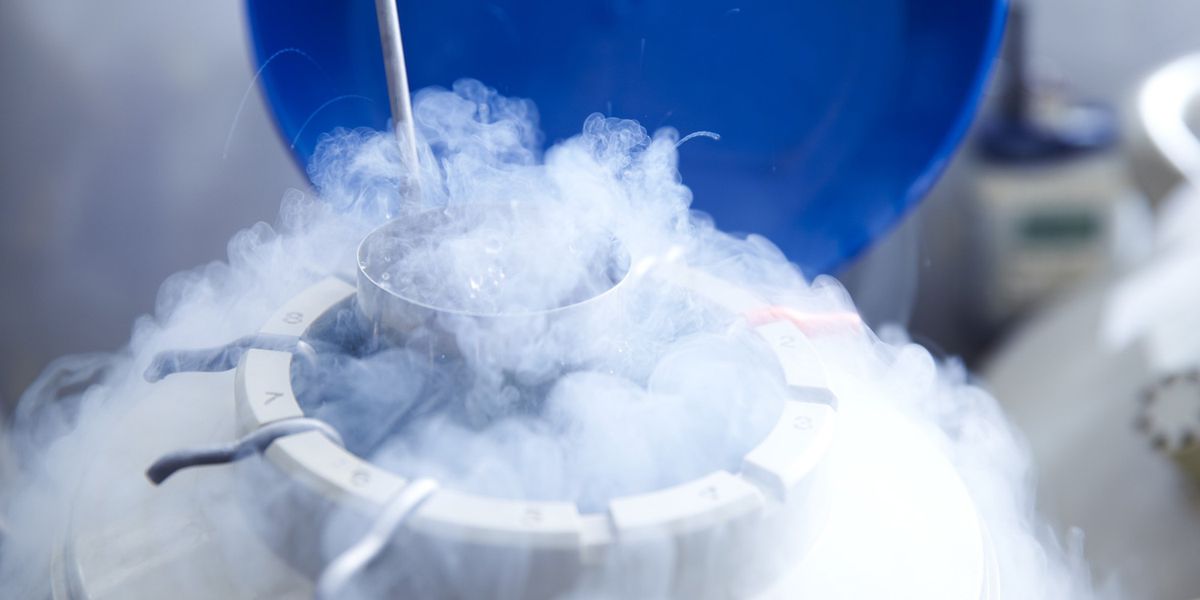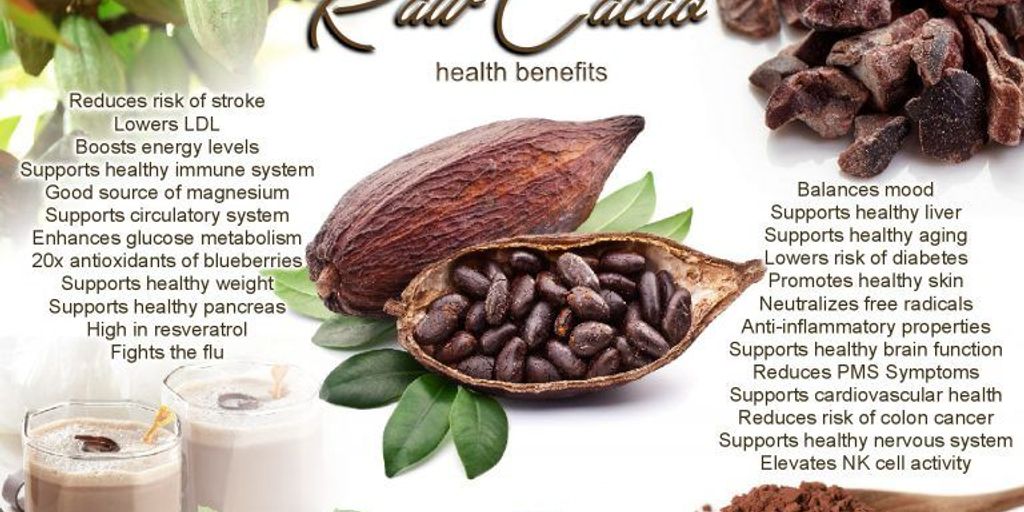Fertility issues can be a significant concern for many men, and a low sperm count is a common culprit. Understanding the factors that influence sperm production and exploring the various medical interventions available are essential steps in addressing this challenge. This article delves into the intricacies of sperm count and fertility, examines both conventional and natural remedies to enhance sperm production, and discusses advanced medical treatments. It also provides guidance on navigating the treatment process, emphasizing the importance of professional consultation and emotional support.
Key Takeaways
- A comprehensive understanding of sperm production and the factors affecting sperm count is crucial for addressing male fertility issues.
- Conventional medications can significantly boost sperm count, but it’s important to consider their efficacy and potential risks.
- Natural remedies and dietary supplements play a pivotal role in improving sperm health and offer a holistic approach to fertility enhancement.
- Advanced medical interventions, such as hormonal therapies and assisted reproductive technologies, provide hope for severe fertility cases.
- Seeking the expertise of a fertility specialist and ensuring emotional support are vital components of the fertility treatment journey.
Understanding Sperm Count and Fertility
The Basics of Sperm Production
Sperm production, or spermatogenesis, is a complex process that takes place within the testicles. It involves the development of sperm cells from germ cells in a series of stages over approximately 74 days. The health and functionality of these sperm are crucial for male fertility.
During this process, several hormones, including testosterone and follicle-stimulating hormone (FSH), play pivotal roles in the maturation of spermatozoa. The mature sperm then mix with fluids from the seminal vesicles, prostate gland, and bulbourethral glands to form semen.
Semen is not just sperm, but a rich mixture of secretions that provide nutrients and protection for sperm on their journey. It includes substances like citric acid, copper, calcium, magnesium, zinc, fructose, and vitamins C and E, which are essential for the vitality and motility of sperm.
Understanding the intricacies of sperm production is the first step towards addressing issues related to low sperm count and suboptimal male reproductive health.
Factors That Affect Sperm Count
A variety of factors can influence sperm count, and understanding these can be crucial for those looking to improve fertility. Environmental conditions, such as exposure to heat or harmful chemicals, can significantly impact sperm production. Lifestyle choices also play a role; for instance, smoking and excessive alcohol consumption are known to reduce sperm count.
Genetic factors and underlying health issues, such as hormonal imbalances or infections, can also affect sperm production. Stress, both physical and emotional, has been shown to have a detrimental effect on sperm count.
Maintaining a healthy weight and managing stress are important steps in optimizing sperm production.
- Environmental conditions
- Heat exposure
- Chemical exposure
- Lifestyle choices
- Smoking
- Alcohol consumption
- Genetic factors
- Health issues
- Hormonal imbalances
- Infections
- Stress
The Link Between Sperm Count and Male Fertility
Understanding the connection between sperm count and male fertility is crucial for those seeking to maximize their chances of conception. A higher sperm count generally increases the likelihood of successful fertilization, as it raises the odds that a sperm will reach and fertilize an egg. However, it’s not just about quantity; sperm quality and motility are also vital components of male fertility.
Factors such as diet, obesity, smoking, alcohol consumption, and recreational drug use have been shown to negatively impact sperm count and overall reproductive health. These lifestyle choices can lead to a decrease in sperm parameters, which is a concern that has been growing in the 21st century.
It is essential to recognize that while sperm count is an important indicator of male fertility, it is not the only factor. A comprehensive approach to fertility must consider all aspects of sperm health and the underlying causes of any deficiencies.
To improve sperm count and enhance fertility, men can consider a range of interventions, from lifestyle changes to medical treatments. Each option should be evaluated carefully, with an understanding of the potential benefits and limitations.
Conventional Medications to Boost Sperm Count
Prescription Drugs and Their Mechanisms
The journey to enhance sperm count often leads to the use of prescription drugs, which can play a pivotal role in male fertility treatments. Clomiphene, an antiestrogen medication, is frequently prescribed to stimulate sperm production. It operates by triggering the body’s own hormonal mechanisms to increase the production of testosterone and, subsequently, sperm.
Medications vary in their approach to boosting sperm count, with some directly influencing testosterone levels while others may improve the health of the sperm itself. The table below summarizes common prescription drugs and their primary mechanisms:
| Drug Name | Mechanism of Action | Use Case |
|---|---|---|
| Clomiphene | Increases testosterone | Low sperm count |
| Gonadotropins | Stimulates testes directly | Hormonal deficiencies |
| Letrozole | Reduces estrogen levels | Hormonal balance |
It’s essential to understand that while these medications can be effective, they are not a one-size-fits-all solution and should be used under the guidance of a healthcare professional.
The efficacy of these treatments varies from individual to individual, and factors such as underlying health conditions and concurrent use of other drugs can influence outcomes. Consulting with a fertility specialist is crucial to determine the most appropriate medication for one’s specific situation.
Evaluating the Efficacy of Common Treatments
When considering the effectiveness of medications to increase sperm count, it’s crucial to look at clinical trial results and real-world outcomes. The success of a treatment is often measured by the increase in sperm concentration and motility, as well as the rate of successful pregnancies.
Clomiphene citrate, a selective estrogen receptor modulator, is commonly prescribed and has shown promising results in several studies. However, the response to medication can vary greatly among individuals. A structured approach to evaluating treatment efficacy involves comparing pre-treatment and post-treatment sperm analysis results.
It is important to remember that while medications can significantly improve sperm count, they are not a guaranteed solution for all fertility issues.
The following table summarizes the reported success rates of common medications used to treat low sperm count:
| Medication | Increase in Sperm Count | Success Rate (%) |
|---|---|---|
| Clomiphene Citrate | 2-3 times | 60-85 |
| HCG Therapy | 1.5-2 times | 50-75 |
| Tamoxifen | 2-3 times | 50-80 |
Patients should also consider the potential for side effects and the need for ongoing monitoring during treatment. A comprehensive evaluation by a fertility specialist is essential to determine the most appropriate medication for an individual’s specific condition.
Potential Side Effects and Risks
While conventional medications can be effective in increasing sperm count, they are not without potential side effects and risks. It is crucial to approach treatment with an awareness of these possible adverse effects and to discuss them thoroughly with a healthcare provider.
Common side effects may include hormonal imbalances, mood swings, and gastrointestinal issues. More serious risks could involve cardiovascular problems or liver toxicity. Each medication has its own profile of side effects, and patients should be vigilant about monitoring their health during treatment.
Hira Bhasma, a substance sometimes mentioned in the context of fertility treatments, should be used with caution. Safety precautions are essential to ensure a safe experience with such treatments. Although not a conventional medication, it is important to consider the need for future research on its benefits, dosage, and side effects.
It is imperative for patients to maintain open communication with their healthcare providers and report any side effects experienced during the course of treatment. This proactive approach can help manage risks and ensure the best possible outcomes.
Natural Remedies and Supplements
Herbal Solutions for Enhancing Sperm Production
In the quest to improve sperm count, many men turn to herbal solutions as a natural alternative to conventional medications. Herbal remedies have been used for centuries to address a variety of health concerns, including fertility issues. While scientific research on the efficacy of these remedies is ongoing, some herbs have shown promise in preliminary studies.
Among the most talked-about herbs for sperm production are Ashwagandha, Fenugreek, and Maca root. These herbs are believed to work by supporting the body’s hormonal balance and improving overall reproductive health. Below is a list of commonly used herbs and their purported benefits:
- Ashwagandha: May increase testosterone levels and sperm quality.
- Fenugreek: Linked to enhanced libido and sperm count.
- Maca root: Known for improving sexual function and sperm motility.
While these herbal solutions are accessible and often marketed for various health benefits, it’s crucial to approach them with caution. Not all products are created equal, and some may come with discounts or claims that are not backed by robust scientific evidence.
It’s important to consult with a healthcare provider before starting any herbal regimen, especially since the herbal products market is vast and can include supplements for skin, hair, joint pain, heart, brain health, bodybuilding, and more. This ensures that you choose a product that is safe and potentially effective for your specific needs.
Vitamins and Minerals Essential for Sperm Health
Adequate levels of certain vitamins and minerals are crucial for optimal sperm production and overall reproductive health. Zinc is known to play a vital role in testosterone production and sperm formation. Deficiencies in vitamin C and E can lead to oxidative stress, which may damage sperm DNA.
- Zinc: Enhances testosterone levels and sperm quality.
- Vitamin C: Protects sperm cells from oxidative damage.
- Vitamin E: Improves sperm motility and function.
- Selenium: Essential for sperm formation.
- Folic Acid: Linked to higher sperm counts.
It’s important to maintain a balanced intake of these nutrients to support sperm health. Over-supplementation can be counterproductive and may lead to adverse effects.
Before making any changes to your supplement regimen, it is essential to consult a healthcare professional. They can provide guidance on the appropriate dosages and how to integrate these nutrients with your current health plan. Remember to follow dosage instructions and store capsules safely to ensure their efficacy.
The Role of Diet and Lifestyle in Sperm Count
The impact of diet and lifestyle on sperm count cannot be overstated. A balanced diet rich in certain nutrients is crucial for optimal sperm production and function. Regular physical activity, maintaining a healthy weight, and avoiding harmful habits like smoking and excessive alcohol consumption are also key components of a sperm-friendly lifestyle.
Antioxidants play a significant role in protecting sperm cells from damage. Foods high in antioxidants, such as fruits and vegetables, should be a staple in the diet. Essential fatty acids, found in fish and some nuts and seeds, are important for sperm membrane integrity.
- Omega-3 fatty acids: Enhance sperm membrane fluidity
- Zinc: Vital for testosterone production and sperm formation
- Selenium: Supports sperm motility
- Folate: Important for DNA synthesis in sperm
It’s important to recognize that lifestyle changes can take time to reflect in sperm count improvements. Patience and consistency are key.
Avoiding environmental toxins and managing stress through relaxation techniques or regular exercise can further contribute to a healthy sperm count. By integrating these dietary and lifestyle practices, individuals can create a supportive environment for sperm health.
Advanced Medical Interventions
Hormonal Therapies for Sperm Count Improvement
Hormonal therapies can play a pivotal role in the management of male infertility related to inadequate sperm production. Endocrine imbalances, often a contributing factor to low sperm count, can be addressed through the administration of specific hormones that stimulate spermatogenesis.
Testosterone supplements, for instance, are sometimes prescribed to men with hormonal deficiencies. However, it’s crucial to monitor hormone levels closely, as excessive testosterone can actually lead to a decrease in sperm production. Other hormonal treatments may include human chorionic gonadotropin (hCG) and follicle-stimulating hormone (FSH), which directly influence the testicular cells responsible for sperm production.
The goal of hormonal therapy is to restore the delicate balance of the endocrine system, thereby enhancing the body’s natural ability to produce healthy sperm.
The following table summarizes common hormonal treatments and their targets:
| Hormone | Target Function |
|---|---|
| hCG | Stimulates Leydig cells to produce testosterone |
| FSH | Promotes spermatogenesis in Sertoli cells |
| Clomiphene Citrate | Indirectly stimulates testicular function |
While these treatments can be effective, they must be tailored to the individual’s specific needs and regularly adjusted based on response and side effects.
Assisted Reproductive Technologies (ART)
When conventional treatments and natural remedies are insufficient to resolve male infertility issues, Assisted Reproductive Technologies (ART) may be considered. These advanced medical procedures can significantly increase the chances of conception, even in cases with very low sperm counts.
In vitro fertilization (IVF) and Intracytoplasmic Sperm Injection (ICSI) are two common ART methods. IVF involves combining sperm and eggs outside the body, while ICSI entails the direct injection of a single sperm into an egg. Both techniques require careful monitoring and expert handling by fertility specialists.
The success of ART depends on various factors, including the underlying cause of infertility, the age of the partners, and the quality of the sperm and eggs.
- IVF Success Rates: Depending on the age of the female partner and the specific fertility issues, success rates can vary.
- ICSI Outcomes: Particularly beneficial for severe male factor infertility, ICSI can bypass many sperm-related issues.
It’s important to discuss all available options with a fertility specialist to understand the best course of action for your individual situation.
Surgical Options for Severe Cases
In instances where conventional and hormonal therapies do not yield the desired increase in sperm count, surgical options may be considered as a last resort. These procedures are typically recommended for men with severe cases of male infertility, where there is a physical obstruction or varicocele affecting sperm production or delivery.
Varicocelectomy, the surgical removal of a varicocele, is one such procedure that can have a significant impact on improving sperm count. Another procedure, vasectomy reversal, is performed when a previous vasectomy is the cause of a low sperm count. It’s important to note that the success rates of these surgeries can vary based on individual circumstances.
- Varicocelectomy
- Vasectomy Reversal
- Transurethral Resection of the Ejaculatory Duct (TURED)
- Testicular Sperm Extraction (TESE)
While surgical interventions can be effective, they come with inherent risks and should only be considered after thorough consultation with a fertility specialist. Recovery times and success rates should be discussed to set realistic expectations for the outcome of the surgery.
Navigating the Treatment Journey
Consulting with a Fertility Specialist
When seeking to maximize fertility and increase sperm count, consulting with a fertility specialist is a critical step. A fertility specialist can provide a comprehensive evaluation of your reproductive health and tailor a treatment plan to your specific needs.
- Review medical history and perform a physical examination
- Conduct semen analysis and other diagnostic tests
- Discuss potential treatment options and their success rates
- Develop a personalized treatment strategy
It is essential to maintain open communication with your specialist, as this will allow for adjustments to be made based on your progress and any new findings.
Remember, fertility treatments are a journey, and the guidance of a specialist is invaluable in navigating the path ahead. Regular exercise and addressing any underlying health issues are also important steps in improving fertility.
Monitoring Progress and Adjusting Treatments
As individuals embark on the journey to enhance fertility, monitoring progress is crucial. Regular semen analyses are essential to track improvements in sperm count and quality. These tests should be conducted every three to six months to ensure that the chosen treatments are effective.
Adjustments to medication or supplements may be necessary based on these results. It’s important to maintain open communication with a healthcare provider to discuss any changes in treatment. Remember, patience is key, as it can take several months to see significant changes in sperm parameters.
Consistent evaluation and willingness to adapt treatment strategies are vital for achieving the desired outcome.
For those exploring Ayurvedic medicines and other natural remedies, it’s important to consider the evidence and consult with a specialist. While some may find benefits in these approaches, it is essential to integrate them with conventional medical advice.
Emotional Support and Counseling
The journey to enhance fertility can be as much an emotional challenge as a physical one. Seeking emotional support and counseling is a crucial step in maintaining mental health and resilience during this time. A fertility counselor can provide the necessary guidance to cope with the stress, anxiety, and emotional strain that often accompany fertility treatments.
Fertility issues can place a significant strain on personal relationships. It’s important to openly communicate with your partner and consider couple’s therapy if needed. Here are some key points to consider for emotional support:
- Recognize and validate each other’s feelings.
- Engage in stress-reducing activities together.
- Maintain a support network of friends and family.
- Consider joining a support group for individuals or couples going through similar challenges.
While the focus is often on the physical aspects of fertility, the emotional well-being of both partners is equally important. Ensuring that you have access to emotional support can make a significant difference in your fertility journey.
Embarking on the path to wellness can be daunting, but you’re not alone. Our comprehensive range of Ayurvedic remedies and personal care products at Swasthyashopee is designed to support you every step of the way. From managing pain to enhancing nutrition, our authentic, herb-based solutions cater to a variety of health needs. Begin your journey to balanced health today by visiting our website and exploring our curated selection of natural products. Your optimal well-being is just a click away—start navigating your treatment journey with us now.
Conclusion
In the journey to enhance fertility, understanding the options available for increasing sperm count is crucial. Throughout this article, we’ve explored various medical interventions, lifestyle adjustments, and nutritional considerations that can positively impact sperm production and quality. It’s important to remember that while medicine can offer significant assistance, a holistic approach that includes a healthy lifestyle and diet is often most effective. Consulting with healthcare professionals to tailor a personalized plan is paramount. As research continues to advance, new treatments may emerge, offering even greater hope for those facing fertility challenges. Ultimately, the goal is to provide individuals and couples with the knowledge and resources they need to make informed decisions on their path to parenthood.
Frequently Asked Questions
What is considered a normal sperm count for fertility?
A normal sperm count is typically considered to be 15 million sperm per milliliter of semen or more. Counts below this threshold may be considered low and can affect fertility.
Can medication really improve sperm count?
Yes, certain medications can improve sperm count, especially if the underlying cause of low sperm count is related to hormonal imbalances or infections.
Are there any natural remedies proven to increase sperm count?
Some natural remedies, such as herbal supplements, vitamins, and dietary changes, may help improve sperm count, but their effectiveness can vary and should be discussed with a healthcare provider.
What are the potential side effects of medications for increasing sperm count?
Side effects can include hormonal changes, mood swings, and gastrointestinal issues, among others. It is important to discuss potential side effects with a healthcare provider before starting any medication.
How do lifestyle changes impact sperm count?
Lifestyle factors such as diet, exercise, stress management, and avoiding tobacco and alcohol can have a significant impact on sperm count and overall reproductive health.
When should someone consider advanced medical interventions for low sperm count?
Advanced medical interventions may be considered if conventional medications and lifestyle changes do not result in improved fertility, or if there is a specific medical condition that requires more targeted treatment.











